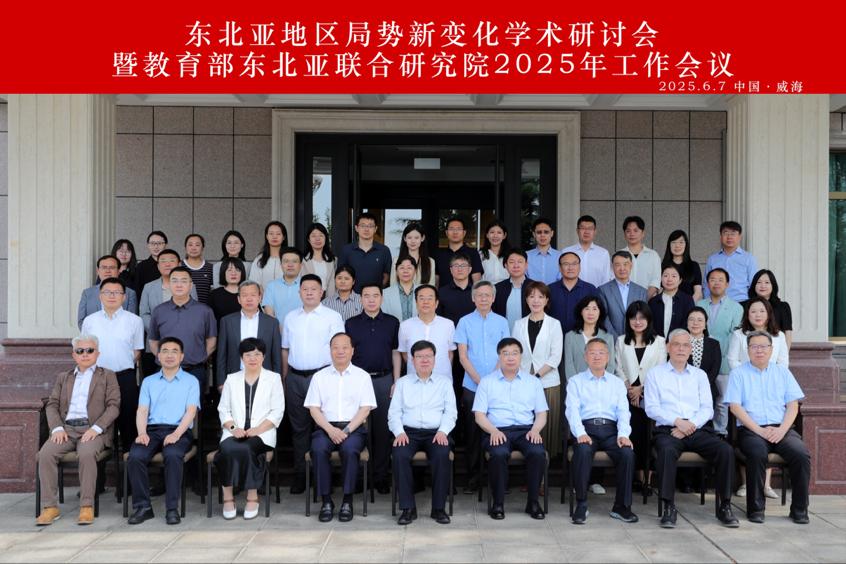From June 6 to 7, 2025, the "Academic Seminar on New Changes in the Northeast Asian Regional Situation and the 2025 Work Conference of the Northeast Asia Joint Research Institute of the Ministry of Education" was held in Weihai, Shandong.The conference delved into major issues such as promoting regional cooperation in Northeast Asia and building a community with a shared future for China's neighboring regions, in light of the new changes in the current Northeast Asian regional situation.
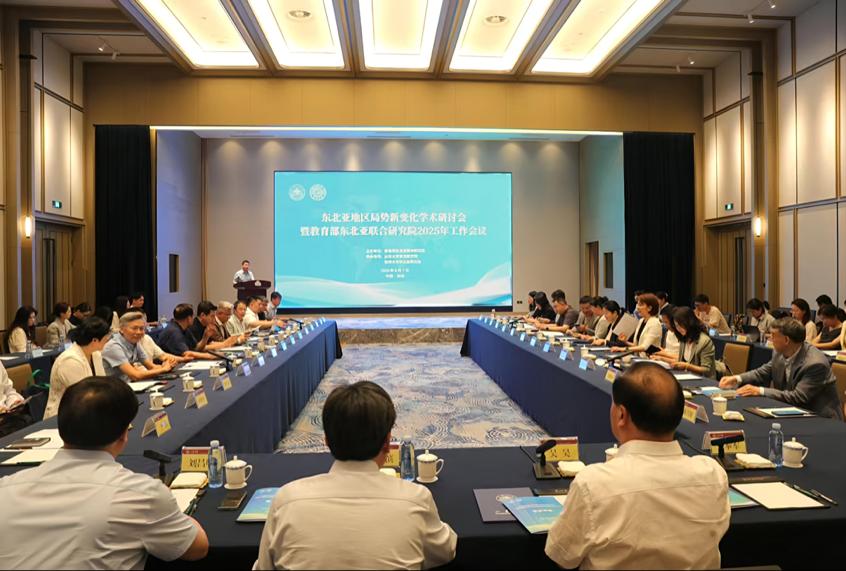
Qiu Daobin, Secretary of the Party Working Committee of Shandong University, Weihai, attended the opening ceremony and delivered a speech. He stated that Shandong University has made systematic arrangements in recent years to serve national strategies and promote regional and country studies,especially thestudies focused on Northeast Asia, and contributing "Shandong University's wisdom" to promoting peace, stability, and prosperity in the Northeast Asian region. He proposed that all collaboratingpartiesof the Northeast Asia Joint Research Institute of the Ministry of Education should collaborate and work together to advance the construction of China's Northeast Asia studies within the global discourse system.
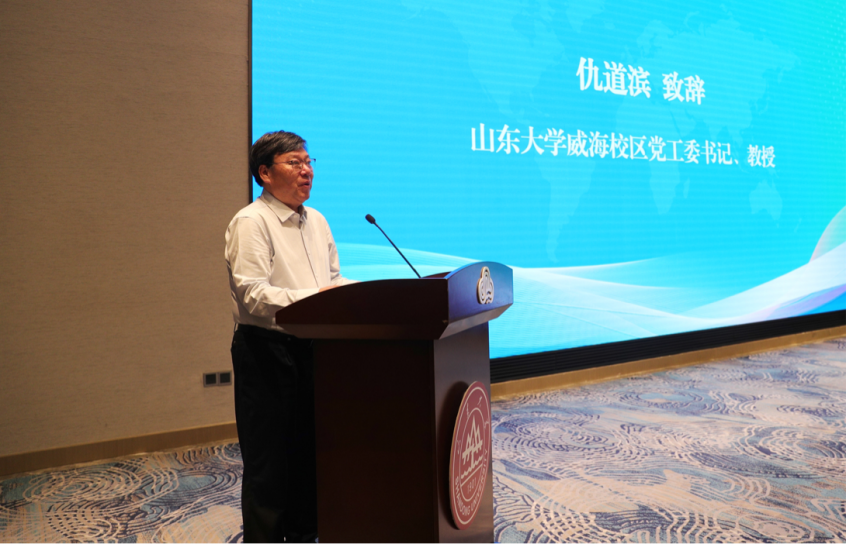
Wu Hao, Dean of the Northeast Asia Research Institute of Jilin University, pointed out in his speech that the Northeast Asian region profoundly influences China's relations with other neighboring regions. Conducting research on regional and country-specific issues in Northeast Asia is not only a need of the times but also a requirement of national strategy. The Northeast Asia Joint Research Institute is an academic community dedicated to gathering Northeast Asia research resources and high-level research forces nationwide. He looked forward to the active participation and strong support of all collaboratingpartiesand academic experts in the construction of the joint research institute, contributing to the promotion of an independent knowledge system of regional and country studies in China.
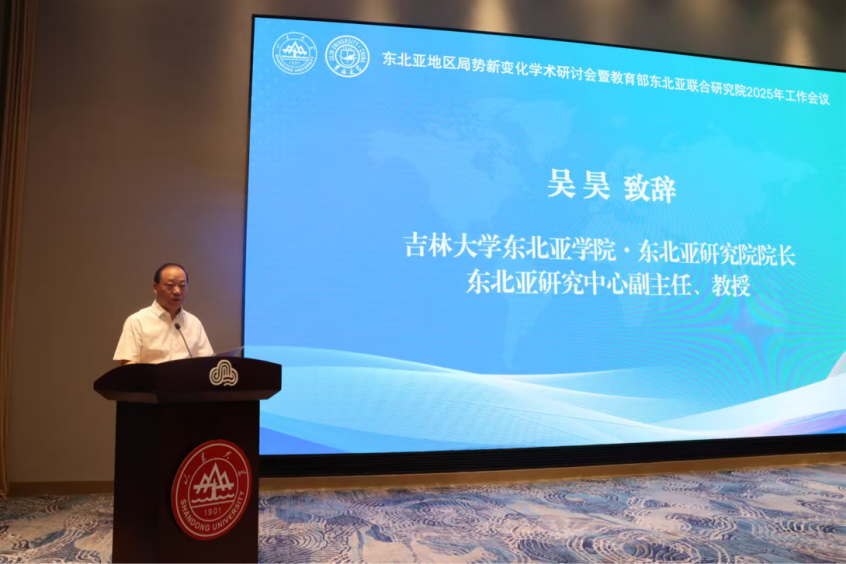
Liu Changming, Dean of the School of Northeast Asia Studies, Shandong University, noted in his speech that influenced by multiple factors, including the adjustment of the United States' strategy towards China in recent years, the uncertainty and instability in the Northeast Asian regional situation have intensified. Deepening research on the new characteristics and trends of the Northeast Asian regional situation holds significant strategic importance. He also briefly introduced theSchool's characteristics and advantages in discipline construction, talent cultivation, faculty development, scientific research platforms, and academic exchanges. He expressed the expectation to strengthen cooperation with universities and research institutions to jointly contribute to the discipline construction and talent cultivation oftheregional and country-specific studies in Northeast Asia.
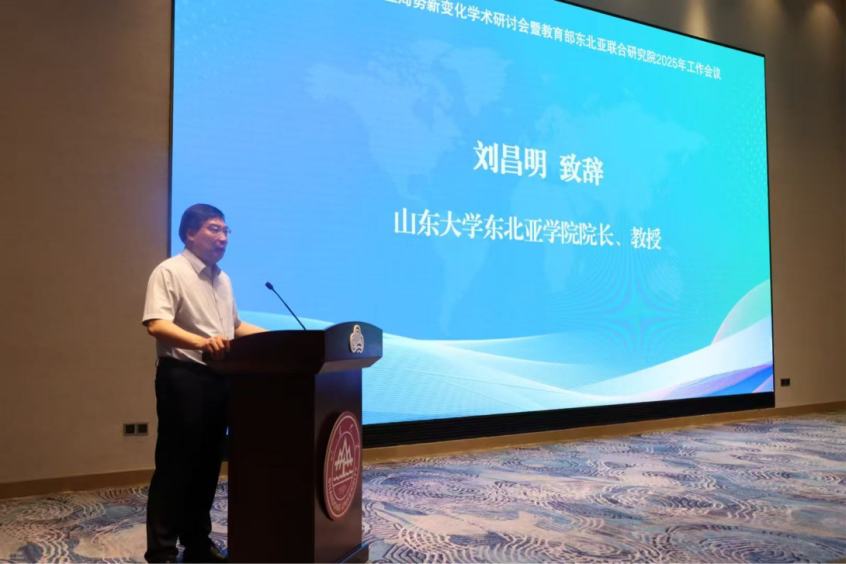
The 2025 Work Conference of the Northeast Asia Joint Research Institute of the Ministry of Education conducted in-depth discussions on the collaborative promotion mechanism for research topics in Northeast Asia, resource integration models, talent co-cultivation plans, and policy transformation pathways. Participating experts proposed deepening collaboration, pooling efforts to tackle challenges, and accelerating the organization and coordination of China's Northeast Asia studies. They emphasized strengthening the collaboration within the Northeast Asia Joint Research Institute by establishing stable exchange mechanisms to support the deepening of regional and country-specific studies in Northeast Asia and enhance the capacity to serve national strategies.
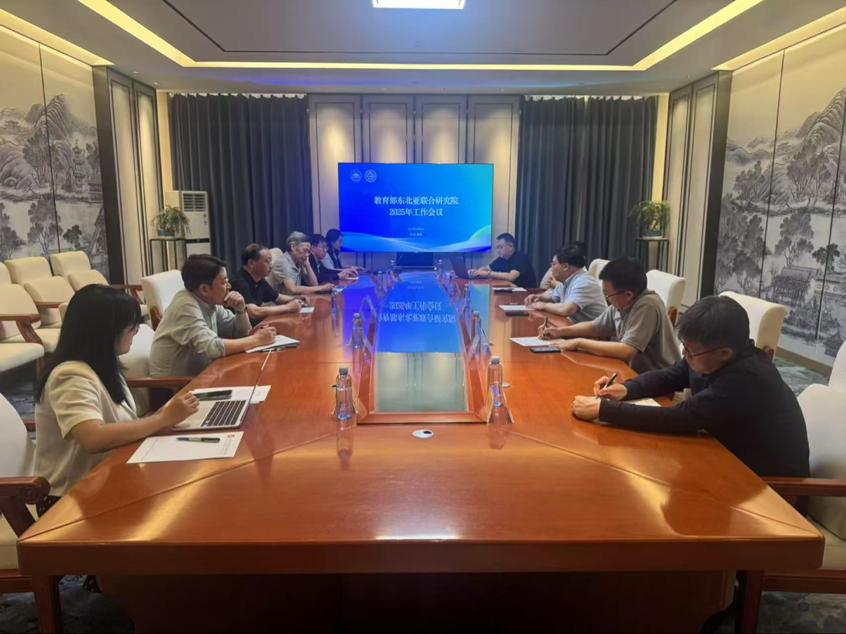
During the academic seminar, experts and scholars engaged in discussions centered around the "new changes in the Northeast Asian regional situation."The first topicis"The Impact of Trump's Second Term on Northeast Asian Geopolitics and Countermeasures". Based on the structural background of great power strategic competition and the uncertainties of Trump's return to power, participating experts thoroughly analyzed the multifaceted impacts of the United States, as a key extraregional power, on the political and economic landscape of Northeast Asia, and explored China's countermeasures. The second topic, "Northeast Asian Regional Cooperation amid Economic Shocks and Security Games," focused on cooperation pathways in Northeast Asia under a complex pressure environment. Participating experts conducted multidimensional and multilevel discussions on the development of inter-state relations and the promotion of regional cooperation in Northeast Asia from the perspectives of strategic choices and economic and trade cooperation. The third topic, "New Trends in the Domestic and Foreign Policies of Northeast Asian Countries", based onthe latest developments of Northeast Asian countries,revealed the shaping role of domestic political processes on the regional landscape and provided crucial micro-policy analyses for the new changes in the regional situationfrom a macro-strategic perspective.Theseminarconducted in-depth discussions on issues such as the new changes and characteristics of the Northeast Asian regional situation, encompassing both theoretical explorations and policy research, contributing wisdom and strength to promoting peace, development, and stability in Northeast Asia.
The conference was hosted by the Northeast Asia Joint Research Institute of the Ministry of Education and jointly organized by theSchool ofNortheast AsiaStudies,Shandong University and the Northeast Asia Research Institute,Jilin University. More than 50 experts and scholars from nearly 20 universities and research institutions, including the National Academy of Governance, Peking University, Fudan University, Nankai University, the University of International Business and Economics, the Chinese Academy of Social Sciences, and the China Institute of Contemporary International Relations, attended the conference.
